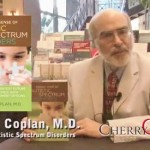Elliot Rodger: What we know (and what we don’t)
Now we learn from his parents’ divorce papers that Elliot Rodger was diagnosed with Asperger Syndrome (AS). (Whether he actually had AS remains unclear at this point in time.) So, once again the autism community attempts to come to grips with an isolated, horrible event, while at the same time trying to protect its own.
The best way forward is to face facts, without succumbing to the temptation to oversimplify.
First: Those who say “There is no evidence that ASD increases the risk of violent crime” are only half right. The truth is, we have no evidence one way or the other. Don’t just take my word. Here is Sven Mouridsen, one of the leading researchers in the field of ASD and crime (By the way, one of his earlier papers is often cited as “proof” of no association between ASD and criminal behavior):
There is a complete absence of research which has investigated the prevalence of ASD in general populations of people who had committed crime. Results published so far provide no basis for addressing the question of whether an association exists between ASD and offending.. .Some studies have such small, unrepresentative samples that any estimate of prevalence of offending is epidemiologically meaningless…Even the larger studies are of unrepresentative, clinical populations.
And here is Marc Woodbury-Smith, another top-flight researcher:
There are…no epidemiological community studies of unlawful behavior in ASD….Small sample size and bias in ascertainment…limit the extent to which [the available] data can be… extrapolated to the wider … ASD population.
Second: Regardless of the average risk of violent crime among persons with ASD, there may be specific instances in which ASD plays a contributing role (in conjunction with other factors, as yet unknown). Quoting again from Mouridsen: “Currently, there is still no body of evidence to suppose that people with ASD are more prone to commit offences than anyone else. However, a small number of serious crimes can be linked to the core features of ASD,” and Woodbury-Smith: “A small yet significant number of primarily higher functioning people with ASD will engage in unlawful behavior. The etiology of their behavior may be understood as arising from a combination of generic forensic risk factors along with factors more specific to the autism phenotype.”
I know these statements, coming from the world’s experts on criminality in ASD, will be upsetting to many in the autism community. (They may also provide fodder to fear-mongers outside the autism community.) But we cannot wish them away. For me, the take-home message is this: Rather than fixating on “average risk” (something we don’t know), or flat-out rejecting the possibility that the core features of ASD may, in rare cases, contribute to criminal behavior, we ought to be asking ourselves Which persons with ASD are most likely to get into serious trouble?; Why?; and What can we do about preventing it?
More next time.
1. Mouridsen, S.E., Current status of research on autism spectrum disorders and offending. Research in Autism Spectrum Disorders, 2012. 6(1): p. 79-86.
2. Woodbury-Smith, M.R., Unlawful behaviors in adolescents and adults with autism spectrum disorders, in Adolescents and Adults with Autism Spectrum Disorders, F. volkmar, B. Reichow, and J. McPartland, Editors. 2014, Springer. p. 269-281.
James Coplan, MD is an Internationally recognized clinician, author, and public speaker in the fields of early child development, early language development and autistic spectrum disorders.















Leave a Reply